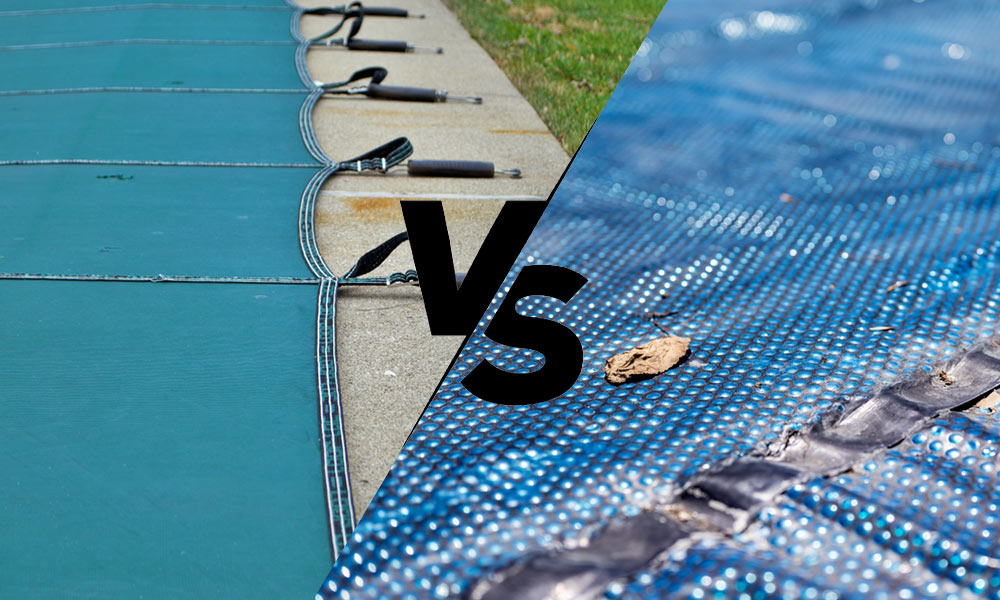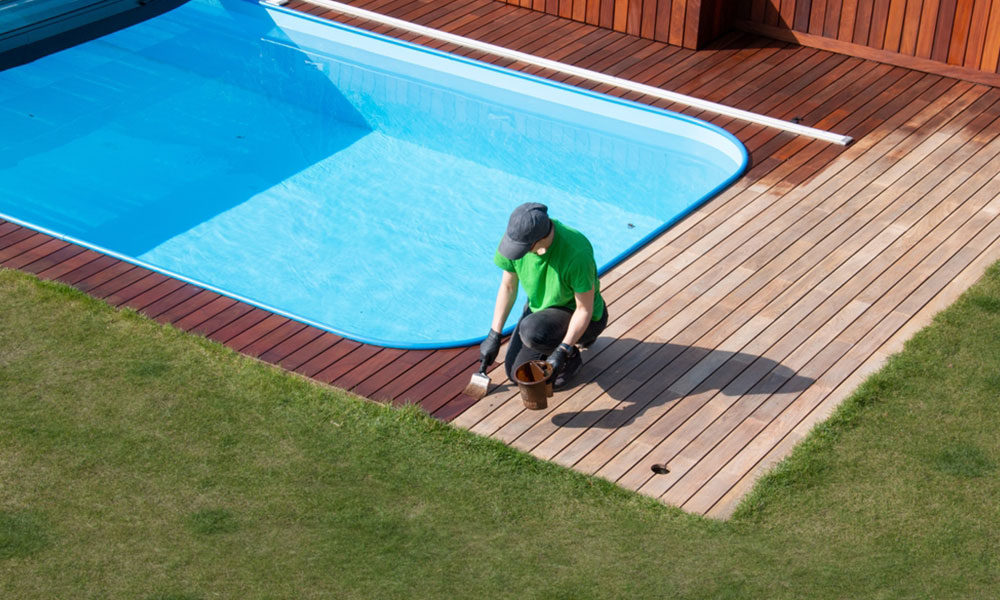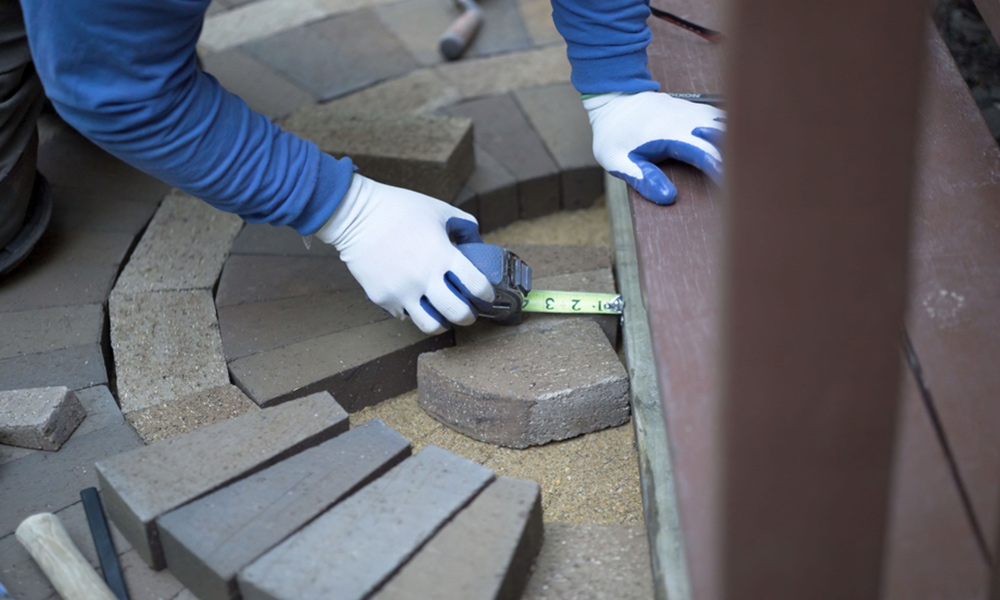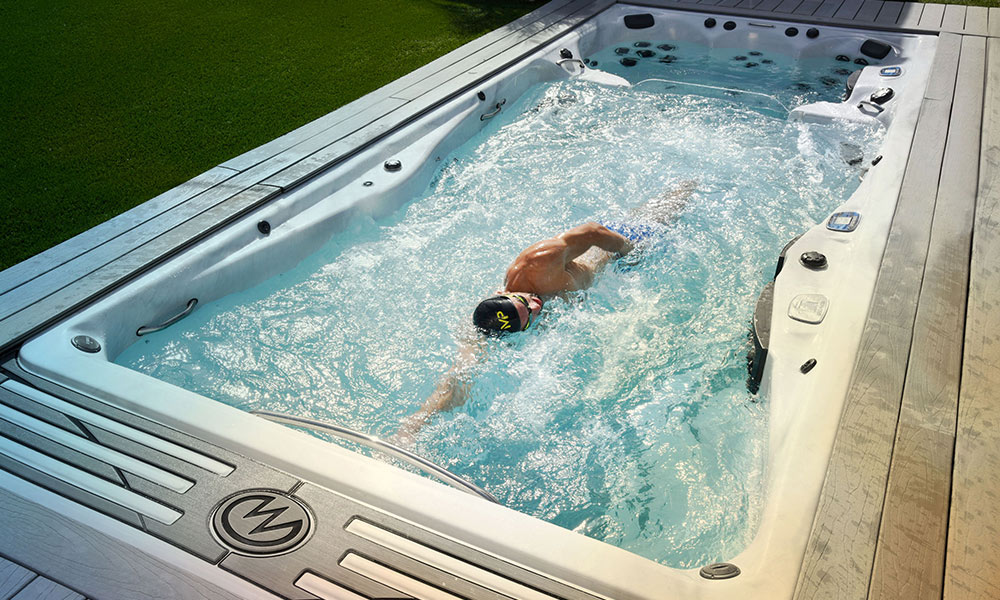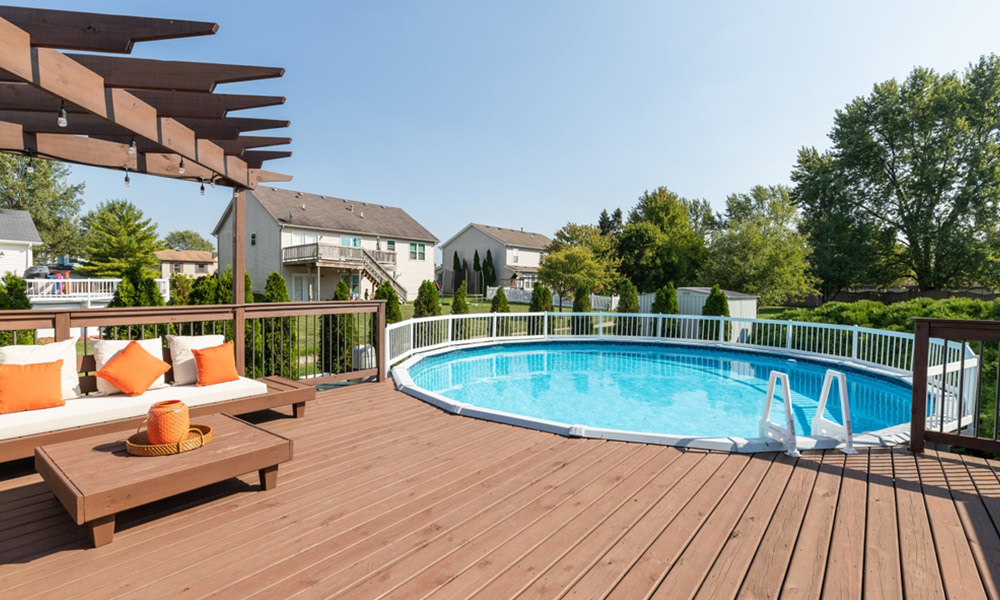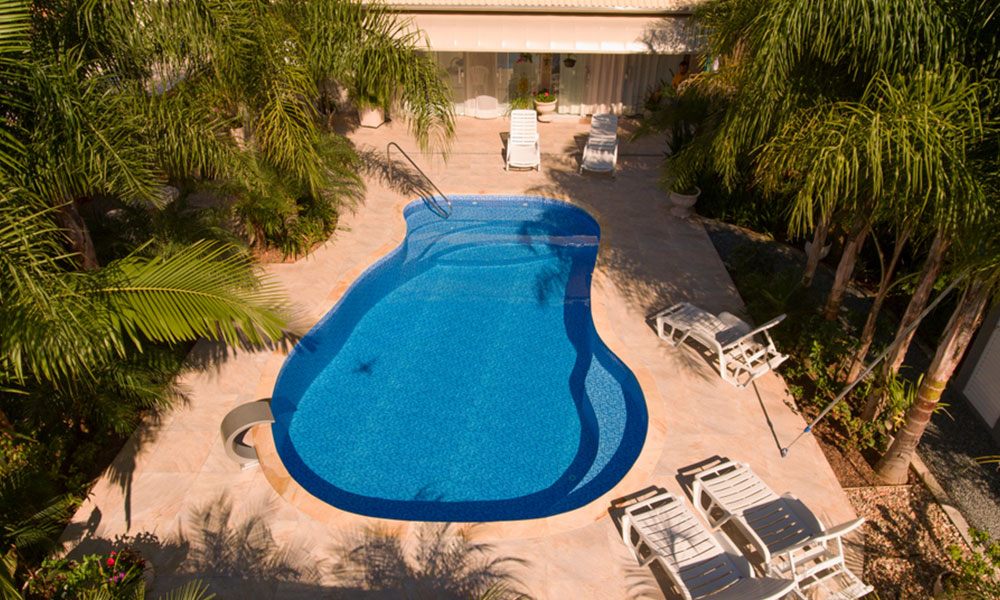Table of Contents
ToggleNew pool owners are generally quick to discover that pool covers aren’t quite as simple as they might have thought. Most people know that pool covers are an important part of owning a pool. But what’s less well known is just how many types there are and how much of a difference they make in everything from upkeep to electrical costs. But you’ll soon know which is the right choice for you – solid or mesh cover.
What is a Pool Cover?
At the most basic level, a pool cover simply covers up your pool. But things get more complicated when you consider just how many ways that can be accomplished. A pool cover can be anything from a simple tarp to a complex mechanical system that rolls out from your deck. You can even get solid covers that are strong enough to support backyard furniture when it’s too cold for a swim.
Advantages of Using a Pool Cover
The choice of which type of pool cover works for you will be heavily influenced by what you need the cover to do. There are some universal benefits to a pool cover. For example, safety is one of the main features of a pool cover and it’s something almost all of them can provide.
An open and unattended pool is dangerous to children, pets, and even wildlife. It’s all too easy for them to slip into a pool. And it’s far more difficult for smaller beings to get out of a pool than most adults realize. But a pool cover can offer ample protection for everyone. Even the furry members of your family will be safe around the pool if there’s a cover on it.
Pool covers can also keep debris out of your pool, let cleaning agents remain active longer, and reduce the growth of various unwanted organisms. Some can even act like a magnifying glass and heat up your pool without any added costs to your power bill. However, different types of covers bring different benefits. And the difference between mesh and solid covers is especially notable.
Mesh Cover Advantages
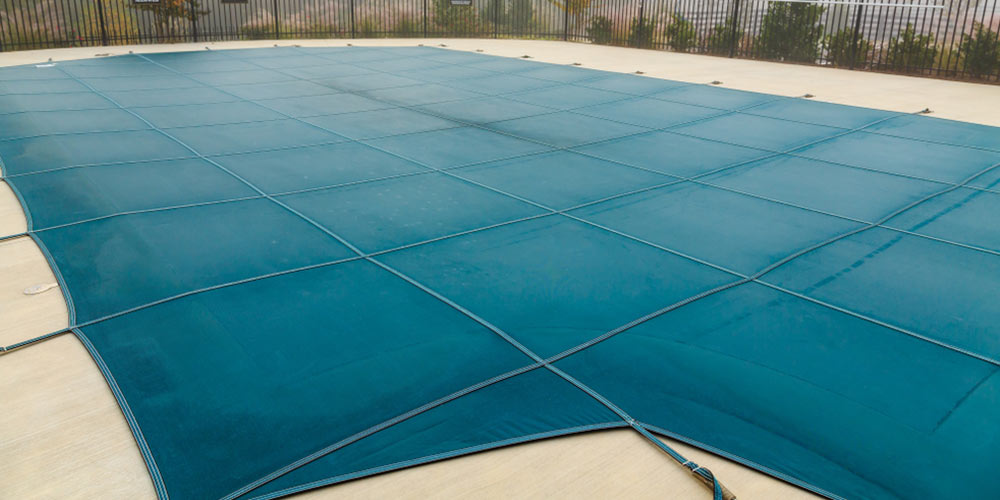
You can almost think of mesh covers as a strainer. It’ll let liquids, such as rain, into the pool. But the cover will still keep larger materials, such as leaves, out of the pool. This is all thanks to the fact that as the name suggests it’s essentially a cover constructed of a large mesh. The fact that this cover isn’t a solid mass means that it won’t collect water when it rains. This keeps the weight down while also reducing any potential dangers from having large amounts of collected water sitting around. A mesh also weighs less than a solid design. One person can easily work with the cover, rather than necessitating multiple people, thanks to this reduced weight.
The fact that there’s less material also tends to translate into both lowered cost and increased lifespan for the cover.
Mesh Cover Disadvantages
Despite those solid advantages, mesh covers aren’t the right choice for everyone. They do have some disadvantages when compared to a solid pool cover. Most notably, the whole point of a mesh cover is permeability. They’re designed to let water go into the pool rather than to collect on top of the pool cover. But this also means that smaller materials, such as sediment, dust, and dirt, can enter the pool. On top of that the sun’s UV rays will also come into contact with the pool water. The sunlight can lower your pool’s chlorine levels while also promoting algae growth. Taken as a whole, all of these factors mean that you might need to clean your pool more frequently if you use a mesh instead of a solid pool cover.
Solid Cover Advantages

Solid covers also have their own unique advantages when compared to mesh pool covers. One of the most important is that solid covers block everything from entering your pool. Both types of cover will provide safety to pets, children, and wildlife by keeping them out of the pool. But only the solid cover will extend that to prevent anything, no matter what the size, from getting into your pool. A solid cover will block things like dirt, grass clippings, pebbles, and any other debris. On top of that, it’ll even keep sunlight from impacting your chlorine levels.

Solid Cover Disadvantages
The most significant disadvantage of a solid cover comes about as a side effect of its primary advantage. A solid cover keeps everything from getting into your pool. But that also means just about everything will collect on top of the pool cover itself. Light debris isn’t a very big deal. But rain, in particular, can be a big problem. There’s a good reason why mesh pool covers stress the fact that water can go through them. Water weighs far more than most people expect. And it doesn’t take much rainfall to bog down your solid pool cover to a pretty severe degree. You’ll often need to use a pump to remove anything but the smallest amount of water on a solid pool cover. And ironically, given the point of a cover, the collected water can itself pose a drowning danger for animals and small children.
And the weight issue isn’t just about what collects on top of the cover. Solid pool covers simply weigh considerably more than mesh covers. You’ll generally need help to set up or remove a solid cover because of its weight. The extra material in a solid cover also translates into extra cost.
Cover Maintenance Tips
You’re hardly alone if you’ve found yourself surprised by the time, money, and effort that goes into pool covers. But there are some tips to keep in mind which can make things a little easier. One of the most important is to reduce buildup on the covers. Excess weight, sharp particulates, and more can all damage a pool cover. And that damage can rapidly snowball over time.
It’s also important to keep budgetary concerns in mind. The initial cost for pool covers can be surprisingly expensive because of tertiary concerns like pumps. And on top of that, you’ll often need to pay for drilling on your pool deck area to accommodate the covers. There are also more expensive systems available for those with bigger budgets who want to go beyond both mesh and solid covers. Sliding covers stored in your deck, covers solid enough to stand on, and more can add an extra dimension to your experiences as a pool owner.
The unexpected costs can be intimidating at first. But there are also some solid ways to get past them. Viking Capital, can provide help for almost any pool project. Combining a loan with planning around your concerns will let you perfectly match your needs to the ideal solution.

Conclusion
The fact that there are so many options for pool covers can seem worrisome at first. But remember that the options exist because everyone deserves a pool perfectly suited to their needs. Ultimately, choosing between mesh and solid covers just means picking the one that fits your own needs and lifestyle.

